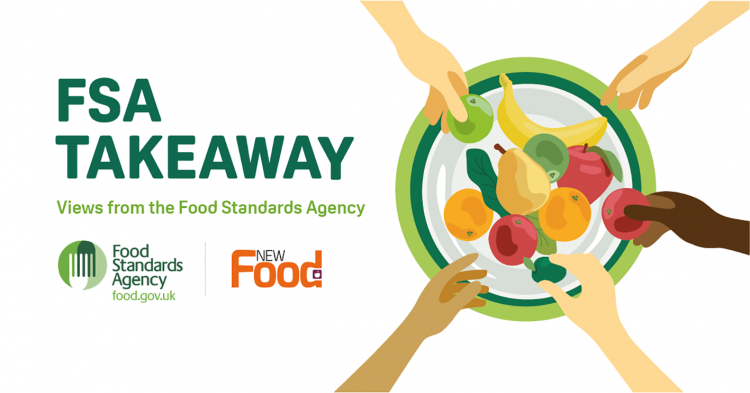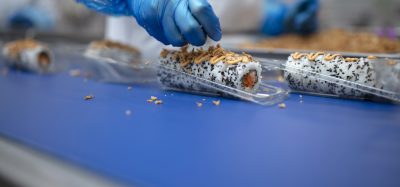Why existing VP/MAP guidance had to change…
- Like
- Digg
- Del
- Tumblr
- VKontakte
- Buffer
- Love This
- Odnoklassniki
- Meneame
- Blogger
- Amazon
- Yahoo Mail
- Gmail
- AOL
- Newsvine
- HackerNews
- Evernote
- MySpace
- Mail.ru
- Viadeo
- Line
- Comments
- Yummly
- SMS
- Viber
- Telegram
- Subscribe
- Skype
- Facebook Messenger
- Kakao
- LiveJournal
- Yammer
- Edgar
- Fintel
- Mix
- Instapaper
- Copy Link
Posted: 17 December 2020 | Jane Clark - FSA | No comments yet
The Food Standards Agency (FSA) Director of Veterinary Services, Jane Clark, discusses recent changes to shelf-life guidance for vacuum-packed chilled pork, beef and lamb.


I’m sure that by now most readers will have seen the news of the Food Standards Agency’s (FSA) announcement on Thursday 10 December which saw a change to the existing 10-day shelf guidance around vacuum and modified atmosphere packed (VP/MAP) chilled fresh pork, beef and lamb.
This is a big step forward; moving away from a one-size fits all approach and marks the end of a robust review process by the FSA and Food Standards Scotland (FSS).
From now on, food businesses can choose a safe shelf-life for these products in line with their own food safety management systems, in the same way they already do for other types of food, utilising pre-existing internationally recognised industry guidance to support this. We are confident that this will benefit both consumers and industry – continuing to ensure high food safety standards and helping to reduce unnecessary food waste in the process.
We will also be supporting businesses who may not have the appropriate technical expertise and resources to apply the industry guidance, by recognising a new 13-day shelf-life for these products, in line with work carried out by our Advisory Committee on the Microbiological Safety of Food (ACMSF).
It is also important to note that this change applies only to VP/MAP chilled fresh beef, lamb and pork without added ingredients or further processing beyond cutting, packing, chilling, freezing and quick-freezing. It does not apply to any beef, lamb or pork that is subject to further processing such as mincing, cooking or mixing with any other ingredients such as herbs, spices or curing salts.
The guidance is designed to reduce the risk of an outbreak of Clostridium Botulinum, but research has highlighted a lack of cases related to vacuum packed chilled fresh pork, beef and lamb.
This decision was taken thanks to the collation and analysis of a wide range of evidence that includes expert microbiological advice, information on the international regulatory approach, and data on fresh meat products gathered globally over many years. We also carried out an open and transparent public consultation process during October and November this year and took those responses into account.
Over the past six months, I have co-chaired a joint regulator and industry working group with David Lindars from the British Meat Processors Association (BMPA) to review and assess possible changes to this guidance, and I would like to extend my sincere thanks to him and everyone in that group for all their hard work and expertise. This is a great example of a joined-up regulatory conversation between government and industry which the FSA’s Chief Executive, Emily Miles, has spoken about – most recently at the Westminster Food and Nutrition Forum seminar, ‘Developing a new National Food Strategy for England’ in early December.
The FSA is a modern, accountable regulator and we are committed to maintaining the highest food safety and standards by understanding the environment that we are regulating and applying robust risk analysis and management processes to protect public health.
I am delighted by the warm welcome our announcement has received. I look forward to continuing to work closely with industry representatives in the future, and continuing to ensure food safety remains the cornerstone of all our efforts.
About the author
Jane Clark has been the Director of Veterinary Services at the FSA since August 2018. She graduated as a vet from Edinburgh University in the 1990s, and has since had an interesting and varied veterinary career. This started with a post graduate project in Oman, working in general practice in the UK, New Zealand, and Hong Kong. Jane also studied veterinary acupuncture before working as a Temporary Veterinary Inspector for the then State Veterinary Service (SVS) during the 2001 foot and mouth disease outbreak.
Within Defra and APHA she has held roles in the operations, policy, veterinary and science directorates. This included working as Defra’s Head of EU Relations for Animal Health and Welfare from 2012-2015, as the Veterinary Lead for Avian Virology in the UK’s National Reference Laboratory at APHA, Weybridge, and, most recently, one of APHA’s Veterinary Leads in Wales.
Related topics
Contaminants, Food Safety, Packaging & Labelling, Regulation & Legislation, Shelf life
Related organisations
Advisory Committee on the Microbiological Safety of Food (ACMSF), Food Standards Agency (FSA)









